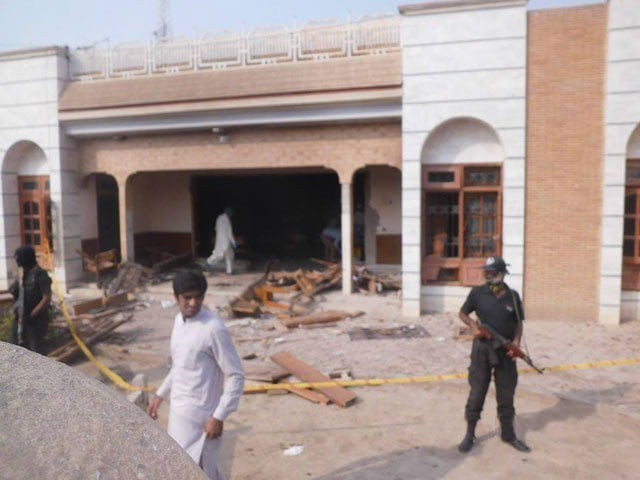The dangers of public service
Security of our elected representatives needs to increase because terrorists are aware of their vulnerabilities

A view of the political office of PML-N MNA Sardar Amjad Farooq Khan Khosa after a suicide attack was carried out on October 14, 2015. PHOTO: EXPRESS

No group has claimed responsibility for the attack, and it is difficult to gauge precisely what the attackers — this was not a lone wolf, the bomber will have been a part of a group — hoped to gain. It was unlikely to have been the result of a personal grudge, sectarian perhaps or even ideological — but if it was designed to dissuade people from public life, then it will be a signal failure as evidenced by the election of the son of Shuja Khanzada in the by-election that followed his assassination.
What the bombing does yet again bring into sharp focus is the need for an urgent review of the culture of ‘access’ that is the bedrock of much of political life. Constituents expect to be able to turn up at the offices of their elected representatives and bring their pleas and grievances to them — it is the South Asian way. Security is often absent or perfunctory, with the offices of the national and provincial assembly members often wide open and the softest of targets. This needs to change, and quickly, if there is not to be a rolling cull of assembly members. Security — their own — needs to move up the agenda of our elected representatives because the terrorists are more aware of their vulnerabilities than they are.
Published in The Express Tribune, October 16th, 2015.
Like Opinion & Editorial on Facebook, follow @ETOpEd on Twitter to receive all updates on all our daily pieces.













COMMENTS
Comments are moderated and generally will be posted if they are on-topic and not abusive.
For more information, please see our Comments FAQ